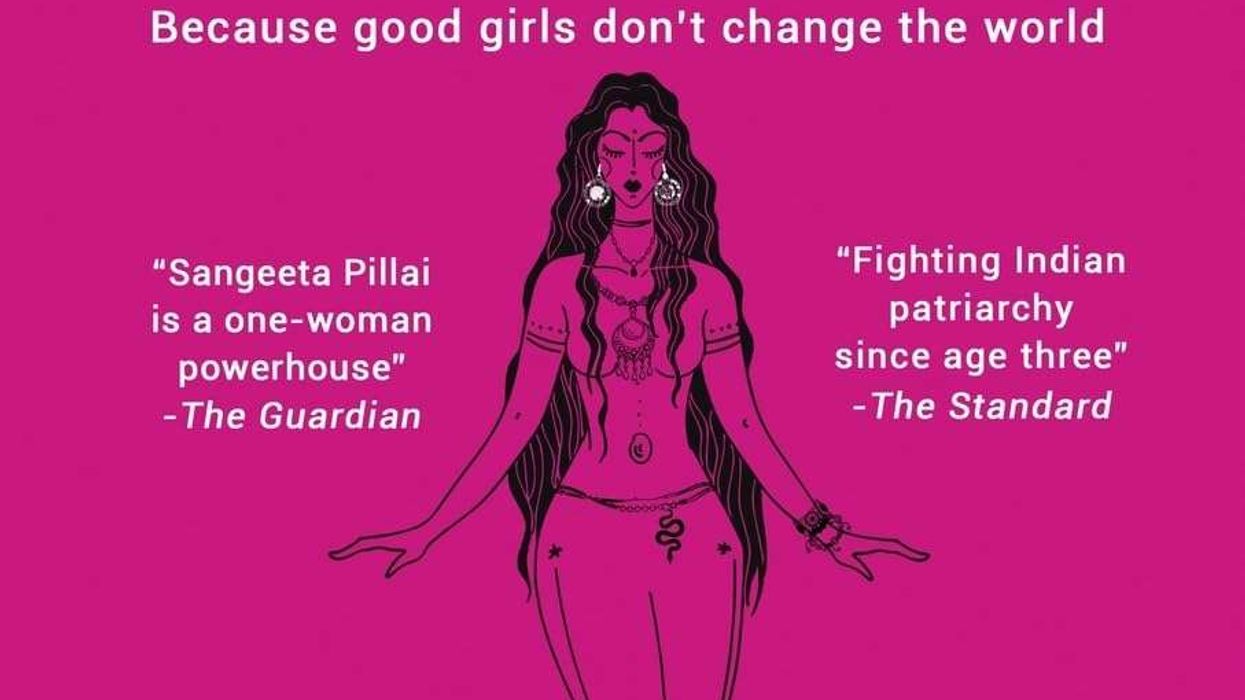A MAJOR sign of new novel The Prince Without Sorrow being special was a five-way auction between leading publishers competing for it.
The dynamic debut book from Australian-Sri Lankan author Maithree Wijesekara is an epic South Asian-driven fantasy inspired by Emperor Ashoka of the Mauryan Dynasty of ancient India, fuelled by Buddhist philosophies that appear throughout this powerful tale.
A grand exploration of the consequences of good and evil, the powerful book plunges readers into a world of winged serpents, giant leopards, and witches. This is the first part of a grand trilogy and marks the beginning of an exciting journey for a clearly talented new literary voice.
Eastern Eye caught up with the practicing Melbourne-based dentist-turned-writer to discuss her fabulous fantasy book and inspirations.
What first connected you to writing?
Reading. I think this is a natural segue for most writers. I read voraciously as a child and accumulated a plethora of ideas that didn’t leave my head. The natural next step was to write all these stories down on my parent’s ancient HP laptop, and once I started, I never learned to stop.
What inspired your debut novel The Prince Without Sorrow, which is part of a trilogy?
The Obsidian Throne trilogy was loosely inspired by Emperor Ashoka of the Mauryan dynasty of ancient India. My initial fascination with him came from having to complete a project in year eight, where we had to present a list of ‘good people’. Because I was cynical and didn’t believe anyone was truly good, I was stuck.
My dad then suggested adding Ashoka the Great (or Dharmashoka). I knew of the emperor because he was a notable figure in Buddhist history, but that was as far as my knowledge extended.
What happened next?
Research revealed him to be a conflicting character: before he was known as Ashoka the Great, he was called Ashoka the Cruel (or Chandashoka). The emperor seemed to be a figure deeply wrapped in fact and myth. Though Emperor Ashoka was interesting, I never included him on the list.
During the Covid-19 lockdown, I recalled this seemingly inconsequential project, and it sparked a series of what-ifs. What if I created a character loosely inspired by his ascent to ‘goodness’? What if it was reversed? What if it was set in a different, fantasy world, with witches and spirits?
This endless barrage of questions became how Ashoka and Shakti wandered into my head and never left.
What else inspired your multi-layered book?
Other than history, film also inspired the book – namely, Studio Ghibli’s Princess Mononoke. It’s a beautiful piece about the relationship between humans and nature, and I highly recommend it.
Tell us a little bit about the story of your book.
The Prince Without Sorrow is a dual POV fantasy. It follows Prince Ashoka Maurya, the youngest son of the tyrannical Emperor Adil Maurya, who opposes his father’s relentless persecution of the empire’s mayakari – witches. His staunch pacifism leaves him at odds with his father’s ideals. Shakti is a mayakari who witnesses the murder of her aunt at the hands of the empire. Mayakari adhere to a pacifist code, but in her anger, Shakti breaks it to cast a curse that causes unexpected repercussions for herself and the monarchy.
Both will be forced to grapple with the consequences of power – either to take it for themselves or risk losing it completely.
What was the biggest challenge of writing this book?
Learning to be at peace after cutting and changing paragraphs upon paragraphs while drafting, because it was really for the greater good.
How did it feel when different leading publishers were competing for your book?
Being the kind of person with a glass-half-empty outlook, I wasn’t expecting much. When I learned there were multiple bids, I think I stopped breathing a little bit. It was surreal. I am beyond excited that The Obsidian Throne trilogy found a home at Harper Voyager.
What inspired the interesting title?
The name Ashoka means ‘without sorrow’, or ‘sorrowless’. Hence, the title could also be interpreted as ‘The Prince Ashoka’. It’s a nod to the historical emperor and his initial reign of bloody expansion.
What is your favourite passage or part of the book?
There are a few. I do enjoy the scene where Shakti speaks to the tiger spirit in Kolakola after casting her curse. It was so much fun to write about these ethereal creatures who are manifestations of the natural world, and how they interact with humans and mayakari.
Did you learn anything new while writing the book?
I came to learn just how mythologised the historical Emperor Ashoka was. He was so mired in fact and fiction that at times, it was hard to separate the two. However, the legends were what I most enjoyed hearing and reading about.
They ranged from tales of how he killed 99 siblings to take the throne, to turning into a snake in his final moments. The latter was orated to me by my aunt, though I’m not sure how ubiquitous that story is.
Who are you hoping will connect with this book?
I hope readers who enjoy fantasy and south Asian history will enjoy this book.
What do you most like about the fantasy genre?
That the possibilities are endless, and the only limit is your creativity.
What kind of books do you enjoy reading for pleasure, and do you have a favourite?
Other than fantasy, I like to read literary fiction and select non-fiction. When I’m drafting, I tend to steer away from reading other fantasy books in my downtime. It’s mostly to get out of my own head by reading a different genre. I’ve enjoyed The Seven Moons of Maali Almeida by Shehan Karunatilaka, Azadi by Arundhati Roy, and Turning Point: 1997-2008, which is a career memoir of Hayao Miyazaki.
What can we expect next from you?
Book two of The Obsidian Throne trilogy will be out in 2026. In terms of new ideas, I am tinkering with a story that is loosely inspired by a rather infamous Sri Lankan queen (what can I say? I love taking inspiration from history).
What inspires you creatively?
It’s history. I find it both fascinating and infuriating how humans tend to repeat it. Movies too are a huge inspiration, especially animated ones. I think we give animated movies too little credit.
Why should we all pick up your debut novel?
If you’re wanting to read a fantasy that takes inspiration from a lesserknown figure of history, with a unique magic system and characters who are a bit chaotic, The Prince Without Sorrow might be right up your alley.
The Prince Without Sorrow by Maithree Wijesekara will be published by Harper Voyager next Thursday (27).












